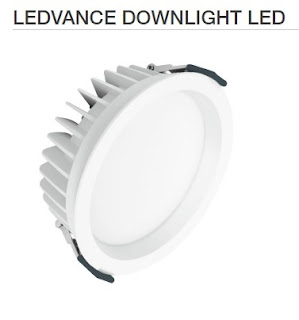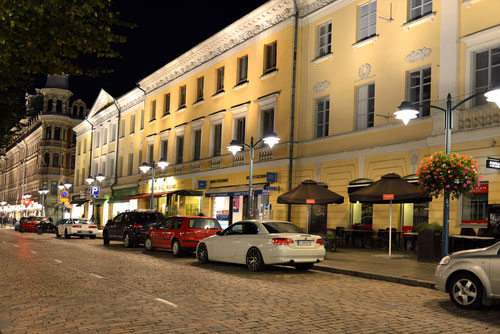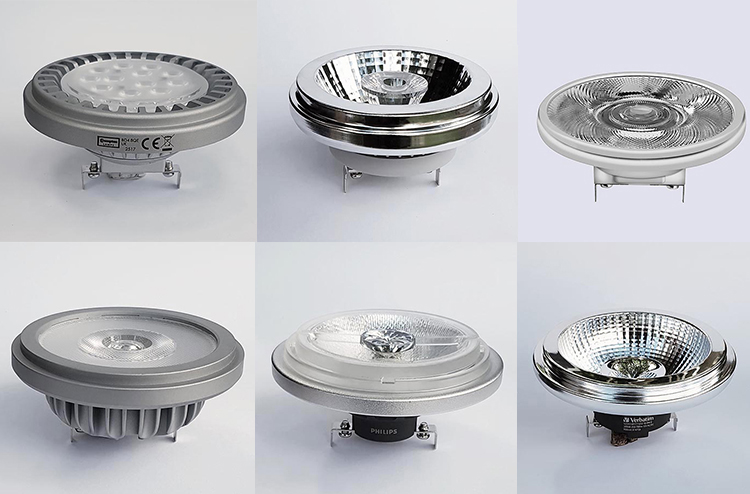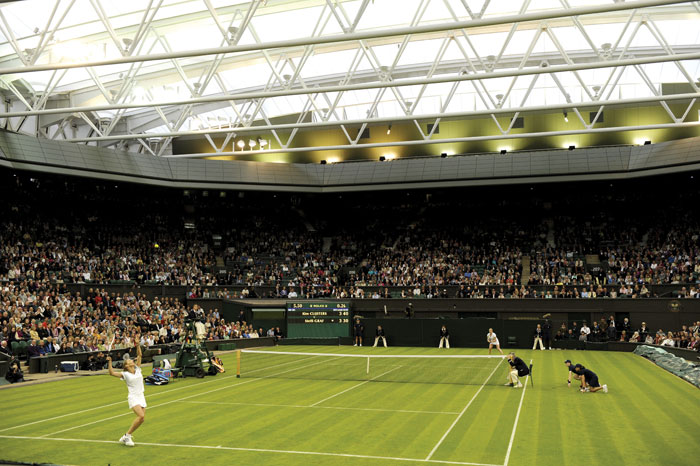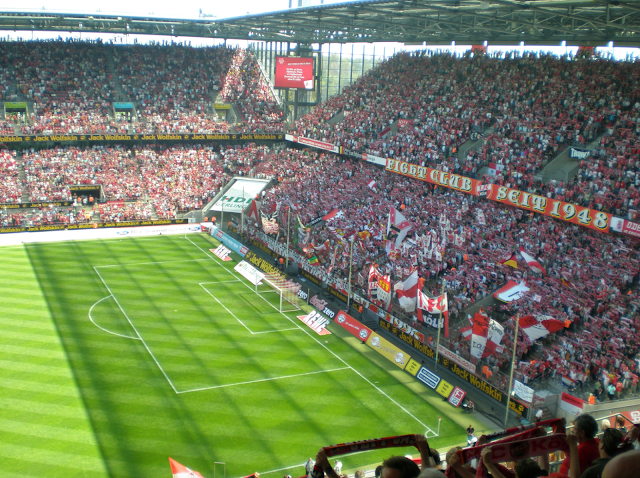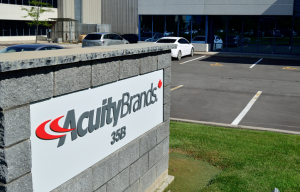TAG | Novel Energy Lighting
We now have on-shelf stock of new LEDVance LED Downlight from Osram in all 3 outputs: 14W, 25W, and 35W.
Product benefits
- High luminous efficacy
- Direct replacement for compact fluorescent lamp downlights
- Energy savings up to 60 % (compared to luminaires that use CFL lamps)
- Very homogenous light
- Functional design
- Easy installation with fast connection
- External driver for extended flexibility (compatible with selected DALI drivers)
Areas of application
- Direct replacement for luminaires with compact fluorescent lamps
- General illumination
- Public areas
- Stairways
- Corridors
- Foyers
- Shops
Product features
- Diameter of required ceiling cut-out: 150 mm or 200 mm (depending on version)
- Type of protection: IP20
4058075000001 · 4058075000025 · 4058075000049 · 4058075000063 · 4058075000087 · 4058075000100 · 4058075016323 · 4058075016347 · 4058075016361 · ledvance downlight · Novel Energy Lighting · osram led · osram ledvance
4
Helsinki’s smart street lights will find you a parking place
Comments off · Posted by admin in LED, Philips LED
THE CITY of Helsinki has installed internet-connected street lights which find motorists a parking place.
The pilot deployment uses miniature Internet-Protocol video cameras mounted on the luminaires to monitor the spaces. These cameras generate data which is interpreted by cloud-based image analytics to assess if the parking space is available. This real-time parking occupancy information can then be pushed to city authorities and motorists. Additionally, this data can be shared with third-party app developers.

A micro camera from Super Circuits similar to the ones deployed in the Helsinki smart parking experiment. The increasing miniaturisation of video cameras means they can easily be incorporated in both outdoor and indoor lighting. Manufacturers say that as prices fall, they could replace passive infra-devices so that, for instance, instead of knowing if a meeting room is occupied, as a PIR can detect, a video camera could be used to determine exactly how many people are present.
It’s also part of a wider programme in which the Public Works Department of the City of Helsinki is considering using public lighting as a potential backbone for Internet of Things services.
Parking is considered a potential killer app for so-called smart cities. Studies in San Francisco have shown that 30 per cent of the traffic congestion in cities is caused by drivers spending time searching for a parking spot, so reducing this time can lower air pollution and traffic noise. Additionally, knowing the location and quantity of parking spaces can help cities cut down on illegal parking and develop a dynamic pricing structure based on use and occupancy data.
Continuous tracking of parking spaces also helps identify parking bottlenecks and offers a means to enable traffic guidance. In the future, outdoor luminaires could provide light indications, making it easy to identify open parking places on city streets.
Philips says the initiative has provided Helsinki with first-hand information about the suitability of video technology for smart parking and helped the city gain valuable insights into how this type of monitoring can be deployed. The company estimates that lighting-based parking management can reduce average parking search time by 40 per cent, reduces average traffic in terms of miles per day by 30 per cent and improve safety by reducing parking spot searches.
The lighting industry sees huge potential in street lighting becoming the digital backbone of smart cities. Trials are currently being conducted into the use of public luminaires to deliver Wi-Fi as well as monitor the use of firearms and the levels of snow.
See LED street lighting at Novel Energy Lighting
dynamic smart parking · Helsinki · led street lights · Novel Energy Lighting · philips lighting · smart cities · smart street lights
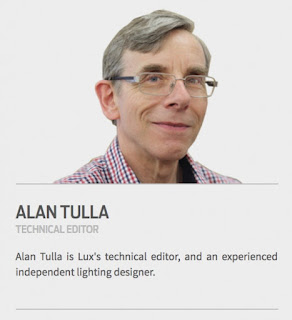
Lux reports: These LED retrofits are designed as energy saving replacements for the original tungsten halogen filament lamps. The AR111 filament lamp is usually 12V and, unsurprisingly, 111 mm diameter.
The lamps reviewed here are designed specifically as retrofit. I.e. they have an integral driver in the base. There are some LED AR111 suppliers whose lamp is only supplied suitable for luminaires with a dedicated, remote driver.
The reason for developing a large diameter reflector lamp was to achieve a tightly controlled beam which could be used for display lighting. Having a 12V filament meant you had almost a “point source” in terms of optics.
These LED replacements, therefore, need to have a good quality beam (no hot spots or striations) and excellent colour rendering. All the lamps have a CRI >80. We asked for lamps with a beam between 20° and 40°. Display lighting often requires a very narrow beam and you should check what is available from the manufacturer.
When we refer to a beam angle, we mean the total width at which the intensity is half the peak. E.g. a 40° beam is a cone of 20° around the central axis. Some manufacturers quote the angle either side of the axis. This makes the beam seem to be half the width it actually is. Labelling regulations say that the packaging should quote the lumen value inside a 90° cone. This is known as ‘useful luminous flux’ and should be marked on the box.
In order to test the colour quality, we sent the lamps to the laboratories at University College London for independent testing and comparison. Thanks go to Peter Raynham, the course director of the MSc in Light and Lighting and Janine Stampfli, the MSc student who conducted the testing.
The LED lamps were compared with a 75W AR111 halogen filament lamp and the CIE CRI and TM-30 Indices.
One final point: you need to check that the retrofit lamp will physically fit inside the luminaire. There have been some cases where the LED version is too large – this is often caused by the size of the heatsink.
Summary
It is interesting to see that the CIE CRI Ra which is based on eight pastel colours gave a good indication of colour rendering compared with the much more detailed and informative IES TM-30 which is based on 99 colours of all shades and saturation.
The Colour Vector Graphic is much more useful because you can easily see the deficiencies and strengths compared with the reference source even though it doesn’t have any numbers attached to it.
One last point that is often forgotten is that the only reason incandescent lamps have a CRI of 100 because they are also used as the reference source. Apart from its familiarity, you wouldn’t really want a light source so deficient at the blue end of the spectrum.

Crompton
This lamp has a nice looking beam with soft edges. Like another of the lamps reviewed, about 8% of the light falls outside a 90° cone. This means you get a bright centre with extra light for the ambient surroundings.
In appearance, there is an attractive outer rim with cooling “ribs/fins”. This spoilt somewhat by the central frosted plastic moulding where the 12 yellow LED chips can clearly be seen.
- Lux rating:
3 STARS

LEDVANCE
This Osram lamp from LEDVANCE most probably gives the nicest beam. It is uniform from the centre to the edge with no sharp cut-off.
The aluminium reflector is quite shallow and, like the other lamps, has diamond shape facets. The front of the lamp is completely sealed by a clear plastic lens. This has the advantage that the reflector would stay clean throughout its life.
- Lux rating:
5 STARS

Megaman LED Reflector
This has a facetted aluminium reflector with a clear prismed plastic cone in the centre to direct the light.
We tested the 48° version and the centre of the beam is nice and clean. However, the overall beam is very wide with 15% of the lumens being emitted outside 90°.
- Lux rating:
3 STARS

Philips Master LEDspot
This is a nice looking lamp and the front face looks almost exactly like the filament version. The concave reflector looks metallic although it is actually heavily prismed clear plastic. There is also a clear conical prism directly above the light source.
The beam is uniform from centre to the edge and there is only the slightest wooliness to the cut-off.
- Lux rating:5 STARS

Soraa Vivid
When I asked one well-known lighting designer which AR111 she specifies, she simply said “Oh, I just go straight to the top and specify Soraa”.
One aspect of Soraa lamps that designers particularly like is the range of snap on lenses. These can be used to adjust the beam width or change the colour temperature, CCT and can be done easily even after installation. If the layout of the shop changes, you can simply use another snap on lens.
- Lux rating:5 STARS
Verbatim
 As mentioned in the introduction, you need to check that the retrofit LED lamp will physically fit the luminaire. Verbatim are proud of their optimised thermal design which means it is shallower in depth than many other lamps.
As mentioned in the introduction, you need to check that the retrofit LED lamp will physically fit the luminaire. Verbatim are proud of their optimised thermal design which means it is shallower in depth than many other lamps.
It is also the most realistic looking lamp. There is no front cover, the reflector is all aluminium and there are no plastic mouldings in the centre. The beam is also good with no unevenness.
- Lux rating:
5 STARS
Test results
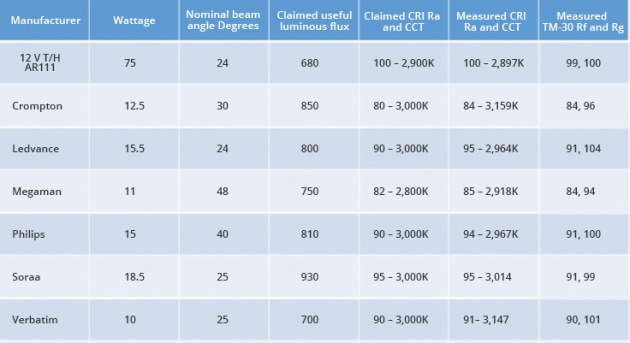
Visit Novel Energy Lighting to buy these brands of LED AR111 at very competitive prices!
crompton led ar111 · LED AR111 · megaman led ar111 · Novel Energy Lighting · osram ledvance led ar111 · philips masterled ar111 · soraa led ar111 · verbatim led ar111
24
Zumtobel scores a goal at Spurs stadium
Comments off · Posted by admin in LED, LED Floodlights
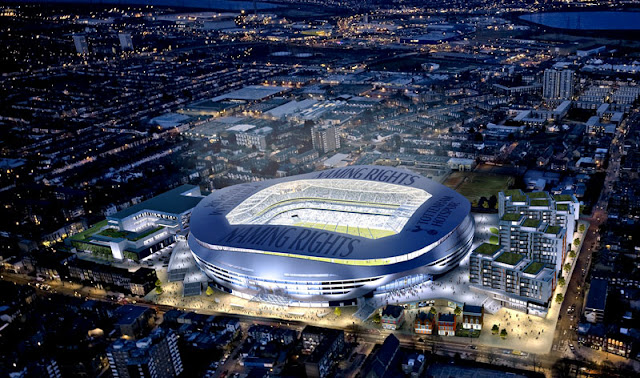
Zumtobel will design and develop the lighting across the 61,000-seater ground in White Hart Lane, north London
Lux repots: ZUMTOBEL has won the prestigious contract to supply lighting for Tottenham Hotspur’s new £800 million stadium.
The company will supply the lighting to a design by independent consultants Buro Happold across the 61,000-seater ground including player facilities, seating bowl, circulation concourse and the extensive façade.
The multi-million pound contract is a major coup for the group and part of a wider trend of design-and-supply arrangements with single manufacturers for major infrastructural projects.
Scheduled to open in 2018, the venue will also play host to NFL American Football games, music concerts and a range of other events.
Zumtobel will also supply sister brands, including acdc, Reiss, Thorn and Tridonic.
Tottenham Hotspur’s director of operations Matthew Collecott told Lux: ‘Zumtobel has extensive expertise when it comes to illuminating stadiums and realising large and complex projects. We’ve every confidence in their ability to deliver a world-class lighting system as part of one of the most atmospheric and technologically advanced stadiums in the world.’
Thorn, a brand of the Zumtobel Group, was responsible for lighting the Wembley Studium in London, the Geoffroy Guichard Stadium in Saint Étienne, the ‘Stadium of Light’ in Lyon and the Alliance Riviera Stadium in Nice for the 2016 European Football Championships in France.
The stadium has been designed by architects Populous working in conjunction with Allies & Morrison and Donald Insall Associates and is being built by main contractor Mace.
Novel Energy Lighting supplies the full range of Zumtobel’s Thorn Lighting products. Contact us today to discuss your project requirements. Tel: 0208-540-8287, sales@novelenergylighting.com
led flood lights · Novel Energy Lighting · outdoor lighting · stadium led · stadium lighting · thorn led · thorn lighting · zumtobel
13
Wimbledon goes LED – just in time for finals
Comments off · Posted by admin in LED, LED Floodlights
THE All England Lawn Tennis Club has ditched the metal halide lighting in Centre Court for LED in time for the 2017 championships.
An American sports lighting specialist has installed LED lighting in the retractable roof that covers Wimbledon Centre Court. The move improves the quality of TV broadcasts and, unlike the metal halides, allows instant striking.
Top: Danish tennis star Caroline Wozniaki was one of the first to play under the LED lights. Pic: Gregg Gorman 2017 Above: The arrangement of the original metal halide luminaires.
‘The purpose of the project was to improve the quality of lighting for broadcasters, whilst simultaneously improving the functionality of the lighting as part of the roof operation,’ AELTC estate director Robert Deatker told Lux.
‘Specifically, this involves reducing the amount of time required by the lights to warm up or cool down, thus making it quicker to resume play,’
The LEDs are a cool 5700K with a CRI of 90. Depending on camera position, the vertical illuminance is 1300–1700 lx and horizontal illuminance is 3000 lx.
The installation is part of growing switch to LED in top-level sports. Many Premier League teams – including Chelsea, Arsenal, Southampton, Bournemouth and Hull City – have already made the switch as have Juventus in Italy and Seville in Spain.
In the US major league baseball teams using solid state lighting including the New York Yankees, the San Diego Padres, Texas Rangers, and Houston Astros.
The lighting firm, working with consultants ME Engineers, created a mockup of the Wimbledon visual setting at its US manufacturing facility to test different CCT and CRI combinations to achieve the optimal combination of direct and indirect light. It also consulted with a UK-based TV crew and professional tennis players to fine-tune the specifications.
The metal halide lighting was installed with the retractable roof in 2009.
led flood lights · led high bay · led sports lighting · metal halide retrofit · Novel Energy Lighting · tennis lighting · wimbledon led
11
Sainsbury’s adds IoT capability in plan to go all-LED
Comments off · Posted by admin in LED

The ambitious plan will make the company the first grocery retailer in the UK to power all its supermarkets entirely by LED.
Sainsbury’s is to add Internet of Things capabilities to its lighting in an ambitious plan that will see all of its stores become 100 per cent LED by 2020, the retail giant has announced.
The plan will make the company the first grocery retailer in the UK to power all its supermarkets entirely by LED lighting.
Some 250,000 luminaires will be retrofitted in 250 superstores in the next three years in addition to those already installed during the company’s ongoing roll-out.
The new fixtures are part of a deal with Current, GE’s low-energy technology supplier, which will see energy used by the lighting reduced by 58 per cent.
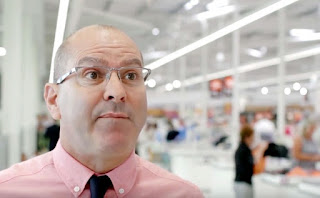
Sainsbury’s sustainability chief Paul Crewe says customers expect the retailer to do the right thing on their behalf. ‘They can be reassured that, day or night, when they visit a Sainsbury’s supermarket, we’ve made a significant in-road into creating a greener supermarket for them.’
The lighting could also be used as a platform for sensors and beacons, allowing interaction with customers. GE’s Predix Internet-of-Things network can transform the lighting into a smart digital infrastructure that uses data and analytics to optimise energy usage, employee productivity and customer interaction.
Sainsbury’s sustainability chief Paul Crewe told Lux: ‘We’ve almost halved the carbon emissions of our stores since 2005, and in the last 12 months we’ve reduced our electricity use by 11.6 per cent despite growing our operation by 54 per cent’.
‘Our customers expect us to do the right thing on their behalf, and they can be reassured that, day or night, when they visit a Sainsbury’s supermarket, we’ve made a significant in-road into creating a greener supermarket for them.’
The project will support Sainsbury’s Sustainability Plan, which calls for carbon emissions by be cut by 30 per cent from 2005 levels. The target has spurred numerous energy efficiency and renewable energy initiatives across its many UK stores, from LED retrofits to solar panels, biomass boilers and ground source heat pumps. To date, Sainsbury’s has already cut absolute carbon emissions by more than 20 percent and is on track to achieve its 2020 target.
Current is delivering the massive lighting retrofit as a turnkey service, embedding financing with lighting design, product supply, installation and project management services.
LUX VIDEO REPORT: THE BIG SAINSBURY’S LED ROLL-OUT
carbon reduction · digital lighting · internet of things · iot · Novel Energy Lighting · retail lighting · sainsburys led · supermarket lighting
LED makes grass on Bundesliga football pitches ‘healthier’

The Greenkeeper LED system in action at the FC Köln ground. Coloured LEDs are used to help spur grass growth.
FC Köln, which holds a prized place in the German Bundesliga, is using a mobile LED light structure that can move around the team’s training and match pitches beaming LED light onto the field.
The club hopes that the LEDs will speed up the turf’s recovery after taking a bruising during a match.
The areas in front of the goals see a disproportionate amount of traffic during a match and therefore need more treatment from the LED lighting.
The team has found that the system leads to grass filling in gaps damaged by play much more quickly than with the older system. Meanwhile, the LED sources are delivering energy savings at the same time.
Hennef, Germany-based Rhenac GreenTec AG developed the LED lighting system, named Greenkeeper, which uses Tina2 optics from Finland-based LEDiL Oy to deliver the required beam pattern.
The frame uses mainly red LEDs with a smaller number of blue LEDs to cover the well-documented chlorophyll absorption peaks of plants. Furthermore, the system includes an integrated infrared heating system to approximate ideal grass-growing conditions, as reported in LEDs Magazine.
FC Köln has found that the LED system delivers six times more light to the playing surface relative to the older HID system. And the mobility enables the pitch crew to move the system into areas that require extra attention.
Evidence gathered from numerous trials, taking place around the world, seems to prove that plants and crops grown using LED light sources, with spectrums tuned specifically to the individual plant or crop, will not only grow faster, but will generally be healthier and provide greater yields – something that bodes well for the future of the LED lighting industry.
A revolution is happening in horticulture. It’s a seismic shift that will change fundamentally how we grow plants – and it’s all down to lighting. Lux’s Horticulture Lighting Conference
bundesliga · grass growing led · greener grass · horticultural lighting · led horticulture · Novel Energy Lighting
The company is hoping to expand its catalogue of IoT offerings, by bringing luminaires and building management controls together.
IoT sensors implanted in LEDs have the ability to collect analytical information on the behaviour of the people that use a building, offering information on how long people stay in a room, for example, and during what hours of the day.
Acuity has devised software that will offer an array of capabilities, including indoor positioning, asset tracking, space utilisation, spatial analytics and energy management.
The company unveiled its new product, Atrius, at Lightfair in Philadelphia, which, the firm hopes will advance Acuity’s IoT products, making them much more sensory.
‘Lights are installed throughout most of our indoor and outdoor spaces. In addition, lights are powered and connected, and with the emergence of LED lighting, they now feature onboard intelligence.’
The product can help employees find available meeting rooms, empower travelers to navigate busy airports, guide shoppers to a specific product on a store shelf or permit a retailer to receive an alert that a customer needs sales assistance.
‘Lights are installed throughout most of our indoor and outdoor spaces. In addition, lights are powered and connected, and with the emergence of LED lighting, they now feature onboard intelligence,’ commented Greg Carter, vice president and general manager of Atrius.
‘That’s why we believe LED lighting is the best and least expensive infrastructure for delivering a sensory network that feeds IoT platforms to connect systems, spaces and people.’
Atrius IoT applications utilise LED lighting infrastructure rather than requiring additional equipment like stand-alone beacons or dedicated IoT networks, bringing a faster return-on-investment.
As IoT technology improves, upgrades are simple and cost effective. Further, the conversion of conventional lighting to LED lighting can provide the energy savings to help fund evolving IoT capabilities.
acuity brands · connected lighting · indoor positioning · internet of things · iot · Novel Energy Lighting · spatial analytics
25
Bright morning light cuts stress in office workers
Comments off · Posted by admin in LED, LED panels

The subjects who received sufficient light – either daylight or artificial – to stimulate their body’s natural sleep-wake cycle, or circadian rhythm, were able to fall asleep more quickly at bedtime, and experienced better quality sleep.
Office workers who receive bright light in the morning have better sleep and lower levels of stress than those who receive low light levels, scientists have discovered.
The subjects who received sufficient light – either daylight or artificial – to stimulate their body’s natural sleep-wake cycle, or circadian rhythm, were able to fall asleep more quickly at bedtime, and experienced better quality sleep. They also reported lower levels of stress and depression.
The finding was consistent during both summer and winter. The scientists, working at the Lighting Research Center at Rensselaer Polytechnic Institute in New York state, recorded each subject’s daily circadian stimulus or CS, the calculated effectiveness of light’s impact on the circadian system. It ranges from 0.1, the threshold for circadian system activation, to 0.7, the response saturation.
The team, led by Dr. Mariana Figueiro, found that office workers receiving a morning CS of at least 0.3, regardless of source, had stronger circadian rhythms, than those receiving a morning CS of 0.15 or less.
At bedtime, participants receiving low CS lay in bed for approximately 45 minutes before they could actually fall asleep, which can lead to reduced sleep duration for those with a fixed wake time.
The study included 109 participants at five office buildings across America. Each study participant wore a Daysimeter, a research tool developed by the LRC in 2004, and used in frequent studies to measure the amount of CS a person actually receives, along with their activity patterns. Each participant was asked to wear the Daysimeter as a pendant for seven consecutive days during data collection periods in winter, between December and February, and again in summer, between late May and August. Data collection was conducted between 2014 and 2016.
‘Our study shows that exposure to high CS during the day, particularly in the morning, is associated with better overall sleep quality and mood scores than exposure to low CS,’ Figueiro told Lux. ‘The present results are a first step toward promoting the adoption of new, more meaningful metrics for field research, providing new ways to measure and quantify circadian-effective light.’
‘We are supporting this type of research so we can learn more about the connections between lighting and health,’ said Bryan Steverson with GSA. ‘The data from this research will help support our efforts in developing new lighting practices that can optimize health benefits for federal employees working in our federal buildings.’
The results will be seized on by proponents of so-called human-centric lighting, in which artificial lighting levels and colour are manipulated during the day to better harmonise with our natural circadian rhythms.
600x600 panel · circadian lamps · daylight · led panels · mege led panels · Novel Energy Lighting · office led · office lighting · thorn led panels
20
Chiltern Railways zaps energy binge with LED overhaul
Comments off · Posted by admin in LED
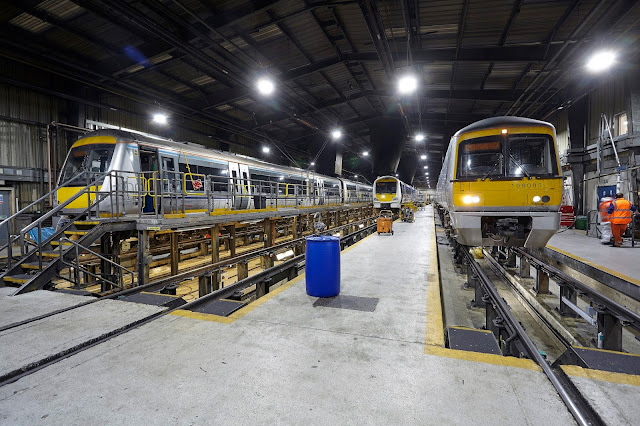
LED highbays installed at the Wembley and Aylesbury maintenance depots delivered a 67 per cent and 48 per cent saving in energy consumption respectively.
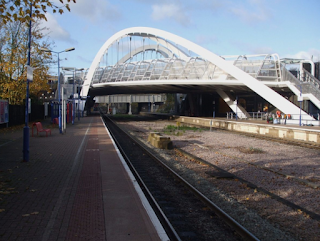
A mix of LED amenity, street and area lighting products were installed to deliver optimum illumination at Chiltern’s Wembley station.
The Arriva owned company has updated the internal and external lighting at three major stations, Wembley, Aylesbury and Stourbridge in the south of the UK.
Energy-intensive 400W highbays at the Wembley and Aylesbury maintenance depots were replaced with hooked LED highbays in a range of wattages and a sustainable, higher efficiency, longer lamp life replacement for traditional 2D bulk heads, was installed in the staff shower and toilet facilities at Wembley.
The offices on both sites were kitted out with ultra slim ceiling panels that deliver high performance and attractive LED lighting. Fluorescent tubing has also been removed and replaced with highly efficient non-corrosive LED fittings, to act as a lower energy consumption alternative.
The LED highbays installed at the Wembley and Aylesbury maintenance depots delivered a 67 per cent and 48 per cent saving in energy consumption respectively. Both sites also realised a further 64 per cent reduction in energy usage thanks to the new ceiling panels.
A mix of LED amenity, street and area lighting products were also installed to deliver optimum illumination in a number of outside areas, including pathways around and access roads to the railway tracks.
A further thirty flood lights were installed to illuminate the tracks at the Stourbridge site and another 285 replaced the legacy 40W twin CFL lights along the pathway running adjacent to the railway track at Wembley.
In all three locations, this provided Chiltern Railways with a low power, high quality LED replacement for the incumbent energy-intensive flood lighting.
Emergency lighting at Wembley which had proved to be problematic, was also upgraded.
At Stourbridge, replacing the energy-intensive legacy lighting alongside the tracks with flood lights resulted in a 62 per cent reduction in energy consumption. Furthermore Chiltern Railways will achieve an average 61 per cent reduction in CO2 emissions.
In addition, Chiltern Railways no longer has to factor in time or budget for maintenance. Chiltern Railways estimate they will benefit from a further reduction in spend of around £10,000 per annum, the amount it previously cost to maintain the lighting infrastructure.
Another benefit has been a dramatic improvement in the quality of light. The external areas are now brighter, more secure and offer safer working environment for the company’s employees.
The superior uniformity of light and improved illumination within the offices, has also been well received by Chiltern’s staff.
Visit us at www.novelenergylighting.com to explore our range of LED high bays, LED Bulkheads, and LED Floods, or call us: 0208-540-8287
chiltern railways · led bulkhead · led flood · led high bays · led lighting · LED retrofit · Novel Energy Lighting · train station lighting

